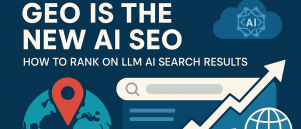1. The Rise of AI in Internet Marketing
1.1 The Evolution of AI in Marketing
1.1 The Evolution of AI in Marketing Over the past decade, the field of marketing has witnessed a remarkable transformation with the integration of artificial intelligence (AI) technologies. AI has revolutionized the way businesses approach internet marketing, enabling them to gather and analyze vast amounts of data in real-time. This has allowed marketers to gain valuable insights into consumer behavior, preferences, and trends, ultimately enhancing their ability to deliver personalized and targeted marketing campaigns. With the evolution of AI, marketers now have access to advanced algorithms and machine learning models that can automate various marketing tasks, such as content creation, social media management, and customer segmentation. As AI continues to evolve, it is expected to further reshape the marketing landscape, empowering businesses to make data-driven decisions and optimize their marketing strategies for maximum effectiveness.
1.2 Benefits of AI in Internet Marketing
1.2 Benefits of AI in Internet Marketing Artificial Intelligence (AI) has revolutionized the field of internet marketing, offering numerous benefits to businesses and marketers alike. One of the key advantages of AI in internet marketing is its ability to analyze vast amounts of data in real-time. By leveraging AI algorithms, marketers can gain valuable insights into consumer behavior, preferences, and trends, enabling them to create highly targeted and personalized marketing campaigns. AI-powered chatbots and virtual assistants also enhance customer experiences by providing instant and accurate responses to inquiries, improving customer satisfaction and loyalty. Additionally, AI can automate repetitive tasks such as data entry, content creation, and social media management, freeing up valuable time for marketers to focus on strategic planning and creative initiatives. Overall, the integration of AI in internet marketing empowers businesses to optimize their marketing efforts, drive better results, and stay ahead in the competitive digital landscape.
1.3 AI-Enhanced Marketing Strategies
1.3 AI-Enhanced Marketing Strategies In recent years, the integration of artificial intelligence (AI) into internet marketing strategies has revolutionized the way businesses connect with their target audience. AI-enhanced marketing strategies leverage advanced algorithms and machine learning techniques to analyze vast amounts of data, enabling marketers to gain valuable insights into consumer behavior and preferences. By harnessing the power of AI, businesses can now personalize their marketing campaigns at scale, delivering highly targeted content and recommendations to individual customers. Additionally, AI-powered chatbots and virtual assistants have become increasingly popular, providing instant customer support and enhancing the overall user experience. As AI continues to evolve, marketers are constantly exploring new ways to leverage this technology to optimize their marketing efforts and stay ahead in the competitive digital landscape.
2. Personalization and Targeting with AI
2.1 AI-Driven Customer Segmentation
2.1 AI-Driven Customer Segmentation AI-driven customer segmentation is revolutionizing the field of internet marketing by providing businesses with a more precise and targeted approach to reaching their target audience. Through the use of advanced algorithms and machine learning techniques, AI technology can analyze vast amounts of customer data, such as demographics, behavior patterns, and purchasing history, to identify distinct customer segments. This enables marketers to tailor their marketing strategies and messages to specific groups, resulting in more personalized and effective campaigns. By leveraging AI-driven customer segmentation, businesses can optimize their marketing efforts, increase customer engagement, and ultimately drive higher conversion rates. This emerging trend in internet marketing is proving to be a game-changer, allowing businesses to gain a competitive edge in today's highly competitive digital landscape.
2.2 Hyper-Personalization in Marketing
2.2 Hyper-Personalization in Marketing Hyper-personalization in marketing is a cutting-edge approach that leverages artificial intelligence (AI) to deliver highly tailored and individualized experiences to consumers. This emerging trend goes beyond traditional segmentation and targeting strategies by utilizing advanced algorithms and machine learning techniques to analyze vast amounts of data. By understanding each customer's unique preferences, behaviors, and needs, hyper-personalization enables marketers to create personalized content, offers, and recommendations that resonate with individuals on a deeper level. This level of customization not only enhances customer satisfaction but also drives higher engagement, conversion rates, and ultimately, business growth. As AI continues to evolve, hyper-personalization is set to revolutionize the way companies interact with their customers, providing a competitive edge in the ever-evolving landscape of internet marketing.
2.3 AI-Powered Targeted Advertising
2.3 AI-Powered Targeted Advertising AI-powered targeted advertising is revolutionizing the way businesses reach their target audience. With the help of artificial intelligence, marketers can now analyze vast amounts of data to identify and understand consumer behavior patterns, preferences, and interests. This enables them to create highly personalized and relevant advertisements that are more likely to resonate with their target audience. AI algorithms can also optimize ad placements and delivery, ensuring that the right message is delivered to the right person at the right time. By leveraging AI in targeted advertising, businesses can significantly improve their marketing campaigns' effectiveness, increase customer engagement, and ultimately drive higher conversion rates.
3. Chatbots and Virtual Assistants in Marketing
3.1 The Role of Chatbots in Customer Engagement
In recent years, chatbots have emerged as a powerful tool in enhancing customer engagement within the realm of internet marketing. These AI-powered virtual assistants are revolutionizing the way businesses interact with their customers, providing instant and personalized responses to inquiries and concerns. By leveraging natural language processing and machine learning algorithms, chatbots can understand and interpret customer queries, offering relevant information and recommendations. Moreover, chatbots can be available 24/7, ensuring round-the-clock customer support and assistance. With their ability to handle multiple conversations simultaneously, chatbots streamline customer engagement processes, saving time and resources for businesses. As a result, businesses can deliver a seamless and efficient customer experience, fostering loyalty and satisfaction. The role of chatbots in customer engagement is undeniably crucial, and their integration into internet marketing strategies is becoming increasingly prevalent.
3.2 AI-Enhanced Virtual Assistants for Customer Support
3.2 AI-Enhanced Virtual Assistants for Customer Support AI-enhanced virtual assistants have revolutionized customer support in the realm of internet marketing. These intelligent systems are designed to provide personalized and efficient assistance to customers, enhancing their overall experience. By utilizing natural language processing and machine learning algorithms, virtual assistants can understand and respond to customer queries in real-time, offering instant solutions and recommendations. These AI-powered assistants are capable of handling a wide range of customer support tasks, such as answering frequently asked questions, providing product information, and even processing transactions. With their ability to learn and adapt, virtual assistants continuously improve their performance, ensuring accurate and up-to-date responses. As a result, businesses can streamline their customer support operations, reduce response times, and ultimately enhance customer satisfaction. The integration of AI-enhanced virtual assistants in internet marketing has undoubtedly transformed the way businesses interact with their customers, providing a more personalized and efficient support system.
3.3 Chatbots for Lead Generation and Conversion
Chatbots have emerged as a powerful tool for lead generation and conversion in the realm of internet marketing. These AI-powered virtual assistants are designed to engage with website visitors and potential customers, providing them with personalized assistance and information. By leveraging natural language processing and machine learning algorithms, chatbots can understand and respond to user queries in real-time, offering a seamless and interactive experience. They can collect valuable data from users, such as their contact information and preferences, which can be used to nurture leads and drive conversions. Additionally, chatbots can automate repetitive tasks, such as qualifying leads and scheduling appointments, freeing up valuable time for marketers to focus on more strategic initiatives. With their ability to provide instant responses, gather data, and streamline processes, chatbots have become an indispensable tool for businesses looking to enhance their lead generation and conversion efforts in the ever-evolving landscape of internet marketing.
4. Predictive Analytics and AI in Marketing
4.1 Leveraging AI for Predictive Customer Behavior Analysis
In today's rapidly evolving digital landscape, businesses are increasingly turning to artificial intelligence (AI) to gain a competitive edge in their internet marketing strategies. One area where AI has proven to be particularly valuable is in predictive customer behavior analysis. By leveraging AI algorithms and machine learning techniques, marketers can now analyze vast amounts of customer data to predict future behaviors and preferences. This enables businesses to tailor their marketing campaigns and offers to individual customers, increasing the likelihood of conversion and customer satisfaction. AI-powered predictive customer behavior analysis not only saves time and resources but also allows businesses to stay ahead of the curve by anticipating customer needs and delivering personalized experiences. As AI continues to advance, its potential for revolutionizing internet marketing is limitless, opening up new possibilities for businesses to connect with their target audience in a more meaningful and impactful way.
4.2 AI-Driven Sales Forecasting and Revenue Optimization
4.2 AI-Driven Sales Forecasting and Revenue Optimization AI-driven sales forecasting and revenue optimization have emerged as powerful tools in the field of internet marketing. By leveraging advanced algorithms and machine learning techniques, businesses can now accurately predict sales trends and optimize revenue generation strategies. AI algorithms analyze vast amounts of historical sales data, customer behavior patterns, market trends, and external factors to generate precise sales forecasts. These forecasts enable businesses to make informed decisions regarding inventory management, pricing strategies, and resource allocation. Moreover, AI-powered revenue optimization techniques help businesses identify opportunities for upselling and cross-selling, leading to increased customer engagement and higher sales conversions. With AI-driven sales forecasting and revenue optimization, businesses can gain a competitive edge in the dynamic landscape of internet marketing.
4.3 Enhancing Marketing Campaigns with Predictive Analytics
In today's rapidly evolving digital landscape, businesses are increasingly turning to predictive analytics to enhance their marketing campaigns. By leveraging the power of artificial intelligence (AI) and machine learning algorithms, marketers can gain valuable insights into consumer behavior, preferences, and trends. Predictive analytics enables businesses to anticipate customer needs and tailor their marketing efforts accordingly, resulting in more targeted and effective campaigns. With the ability to analyze vast amounts of data in real-time, marketers can identify patterns and trends, forecast future outcomes, and make data-driven decisions to optimize their marketing strategies. By incorporating predictive analytics into their marketing campaigns, businesses can stay ahead of the competition and deliver personalized experiences that resonate with their target audience.
5. Voice Search and AI-Optimized Content
5.1 The Impact of Voice Search on SEO
The rise of voice search has significantly impacted the field of search engine optimization (SEO). With the increasing popularity of virtual assistants like Siri, Alexa, and Google Assistant, more and more users are utilizing voice commands to search for information online. This shift in search behavior has forced marketers to adapt their SEO strategies to optimize for voice search. Unlike traditional text-based searches, voice queries tend to be longer and more conversational in nature. As a result, businesses need to focus on creating content that is not only relevant and informative but also structured in a way that aligns with how people speak. Additionally, optimizing for local SEO has become crucial as voice searches often include location-based queries. Overall, the impact of voice search on SEO has necessitated a more natural and conversational approach to content creation and optimization.
5.2 AI-Enhanced Content Creation for Voice Assistants
In the rapidly evolving landscape of internet marketing, AI has emerged as a game-changer, particularly in the realm of content creation for voice assistants. With the increasing popularity of voice-activated devices like Amazon Echo and Google Home, businesses are recognizing the need to optimize their content for voice search. AI-powered tools and algorithms are now being leveraged to generate engaging and conversational content that resonates with users interacting with voice assistants. These tools analyze vast amounts of data, including user preferences and search patterns, to create personalized and contextually relevant content. By harnessing the power of AI, businesses can enhance their online presence and effectively reach their target audience through voice-activated devices.
5.3 Optimizing Websites for Voice-Activated Search
In the rapidly evolving landscape of internet marketing, optimizing websites for voice-activated search has become a crucial aspect for businesses to stay ahead of the competition. With the increasing popularity of virtual assistants like Siri, Alexa, and Google Assistant, consumers are now relying on voice commands to search for information, products, and services. To effectively optimize websites for voice-activated search, businesses need to focus on incorporating natural language keywords, creating concise and conversational content, and ensuring their websites are mobile-friendly. By embracing this trend, businesses can enhance their online visibility, improve user experience, and ultimately drive more organic traffic to their websites.
6. Ethical Considerations in AI-Enhanced Internet Marketing
6.1 Privacy and Data Security Concerns
6.1 Privacy and Data Security Concerns As AI continues to revolutionize the field of internet marketing, privacy and data security concerns have become increasingly prevalent. With the vast amount of personal information being collected and analyzed by AI algorithms, there is a growing need for stringent measures to protect user privacy and ensure data security. Companies must prioritize implementing robust encryption protocols, secure data storage systems, and comprehensive privacy policies to address these concerns. Additionally, transparency and consent mechanisms should be in place to inform users about the data being collected and how it will be used. As AI-enhanced internet marketing evolves, it is crucial for businesses to address privacy and data security concerns to build trust with their customers and maintain a positive reputation in the digital landscape.
6.2 Transparency and Accountability in AI Algorithms
In the rapidly evolving landscape of AI-enhanced internet marketing, transparency and accountability in AI algorithms have emerged as crucial considerations. As AI algorithms become increasingly sophisticated and complex, it is imperative for businesses to ensure transparency in their operations. This involves providing clear explanations of how AI algorithms make decisions and the factors they consider. Additionally, accountability is essential to address potential biases or ethical concerns that may arise from AI algorithms. By implementing robust mechanisms for transparency and accountability, businesses can build trust with their customers and stakeholders, fostering a more ethical and responsible approach to AI-enhanced internet marketing.
6.3 Balancing Personalization with User Consent
In the rapidly evolving landscape of AI-enhanced internet marketing, finding the right balance between personalization and user consent has become a crucial consideration. While personalization allows marketers to tailor their messages and offerings to individual users, it is essential to respect user privacy and obtain their consent for data collection and usage. Striking this balance requires transparent communication and clear opt-in mechanisms that empower users to make informed decisions about the level of personalization they are comfortable with. By prioritizing user consent, marketers can build trust, foster positive user experiences, and ensure compliance with data protection regulations. Additionally, implementing robust data privacy measures and providing users with control over their personal information can help mitigate concerns and enhance the overall effectiveness of AI-enhanced internet marketing strategies.





